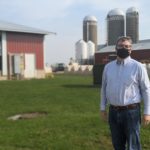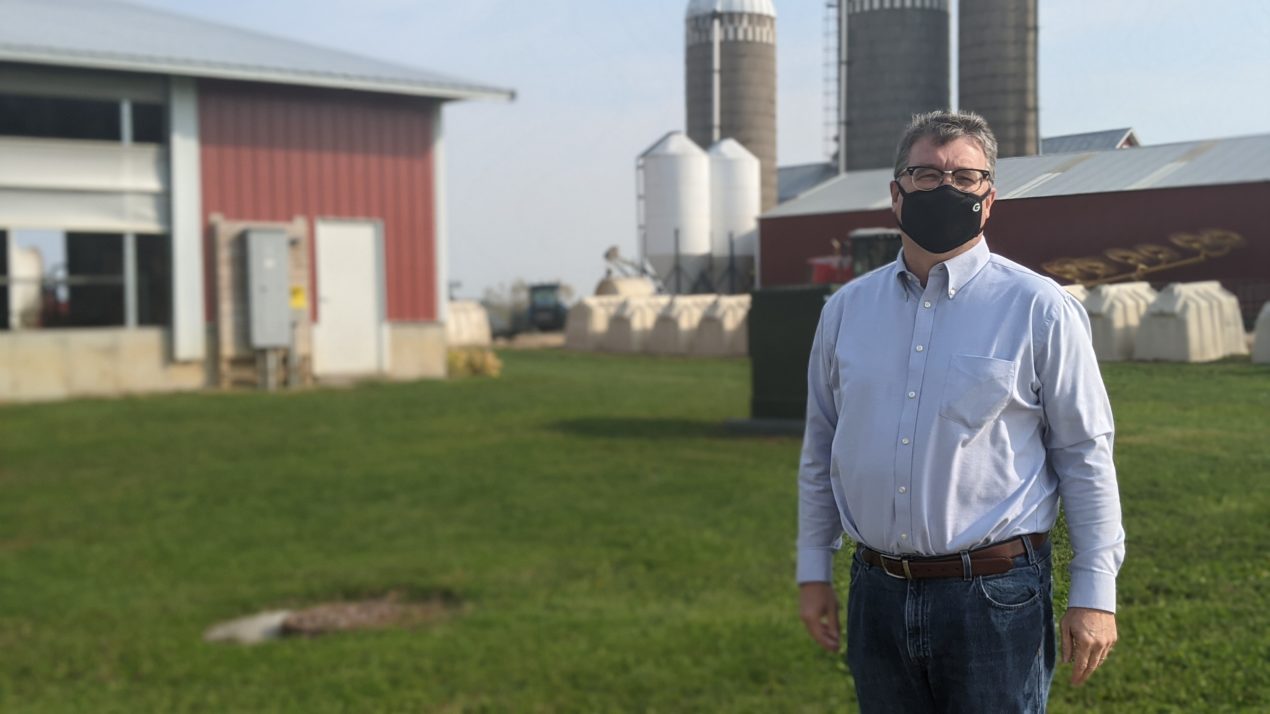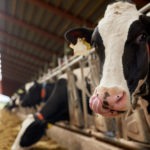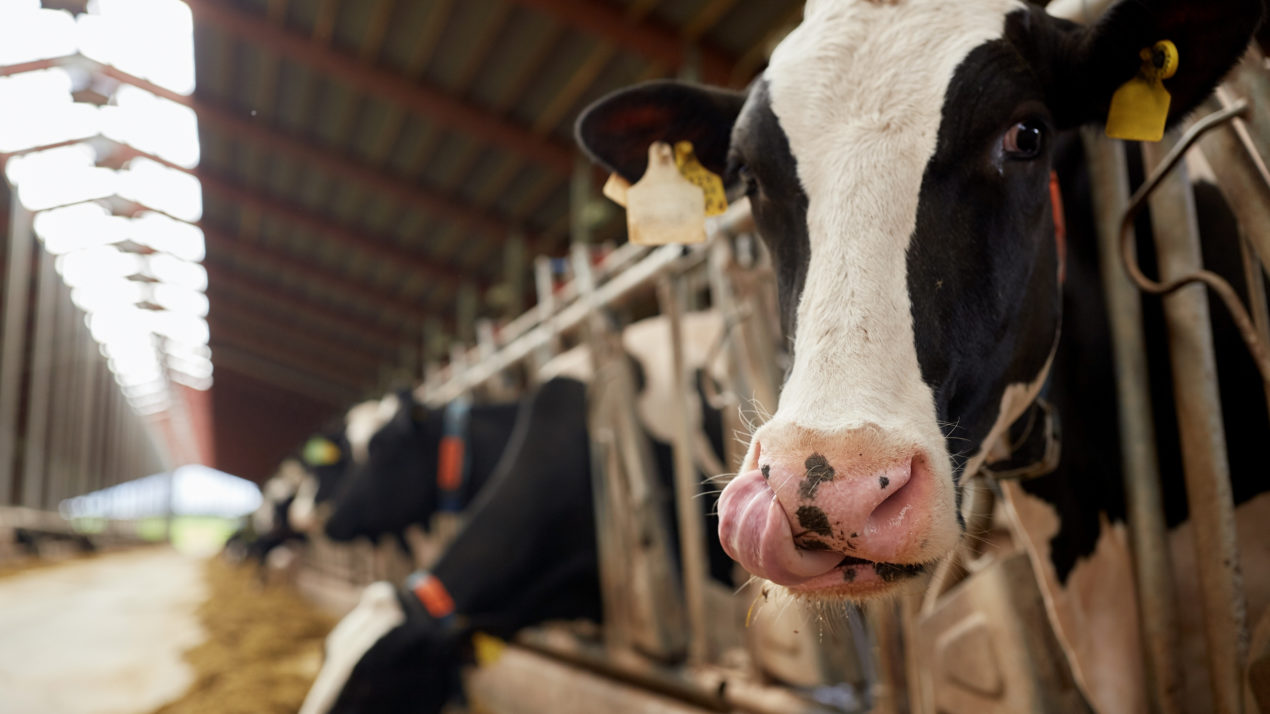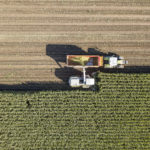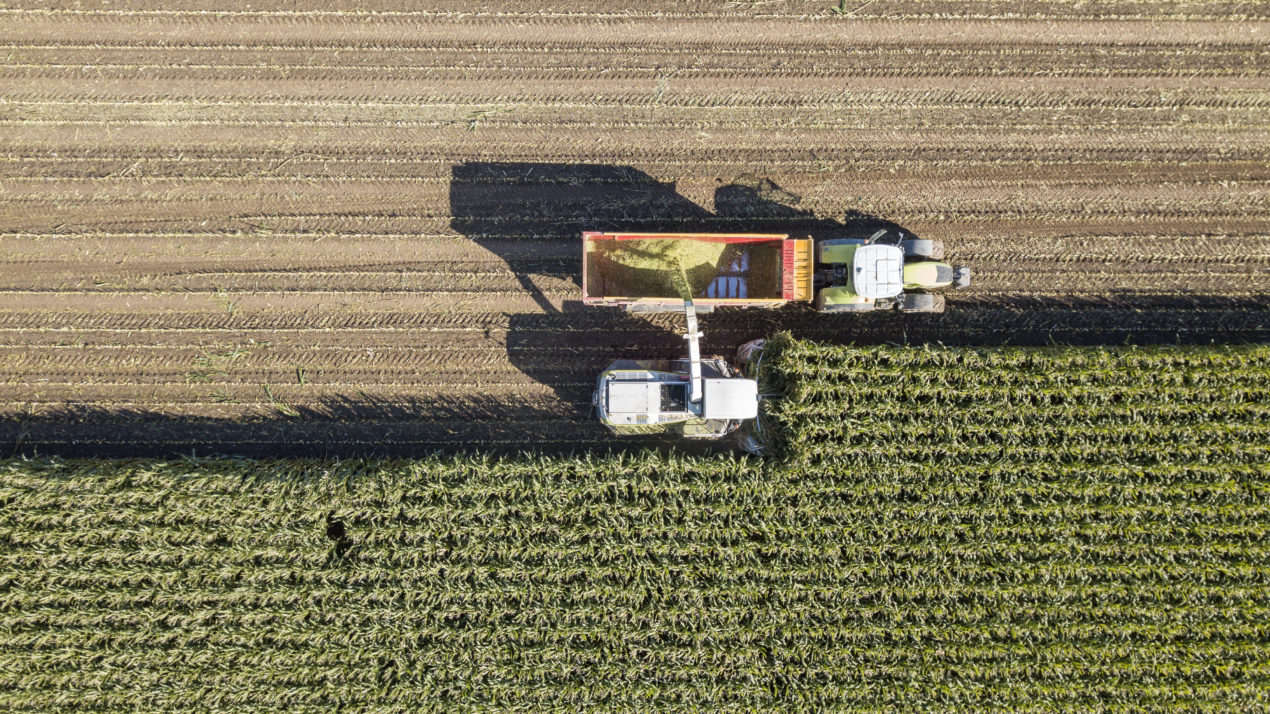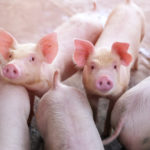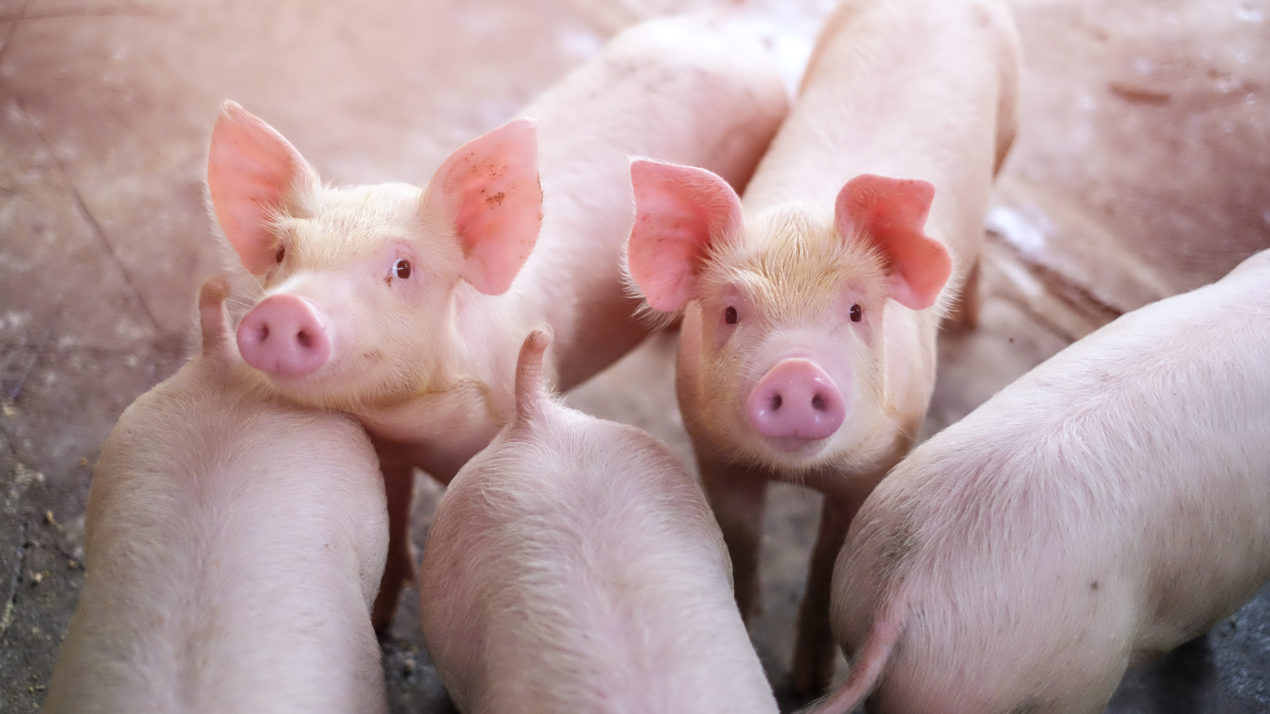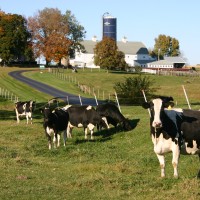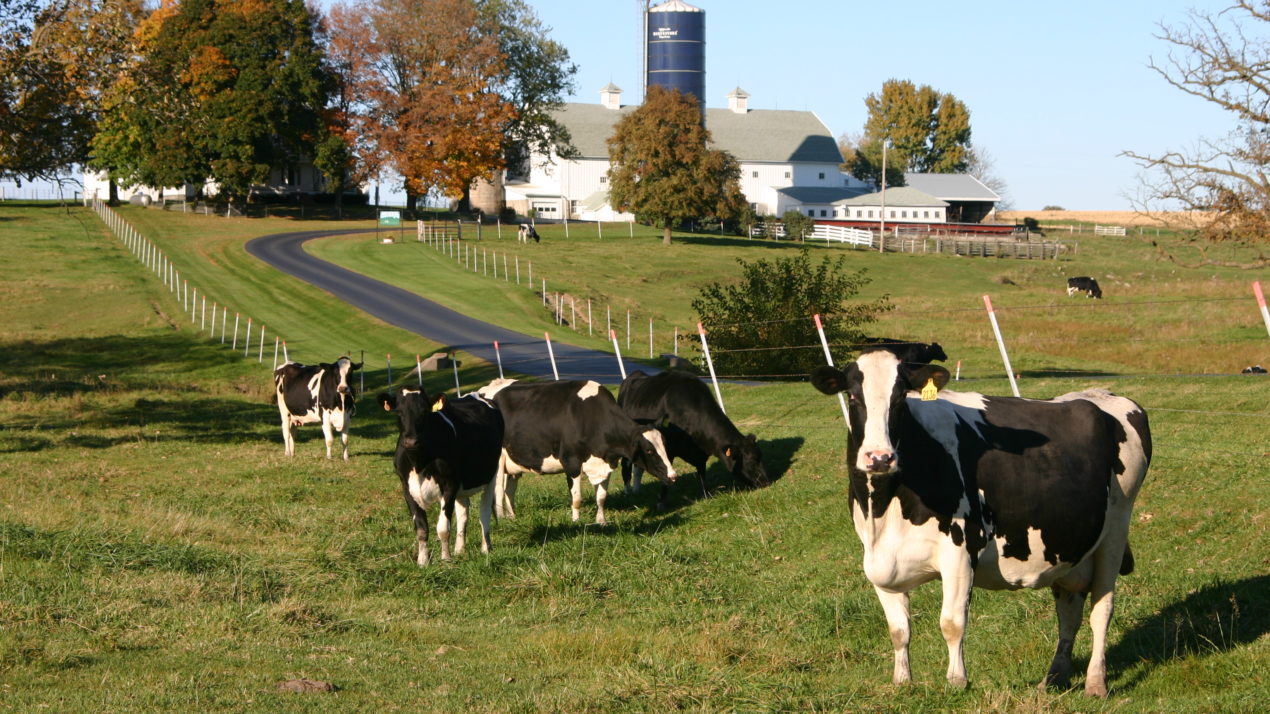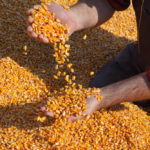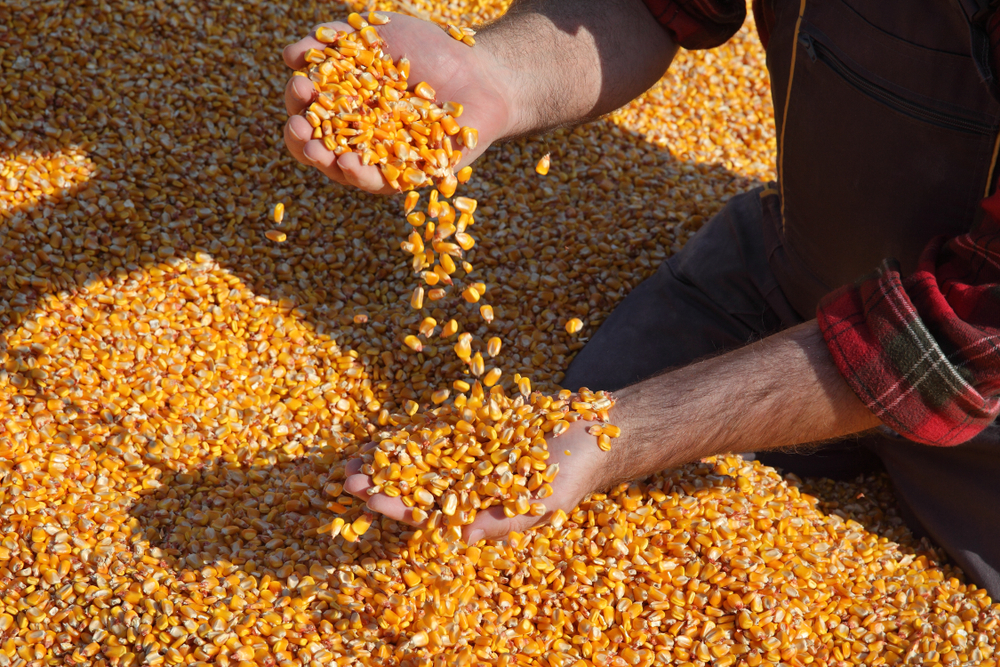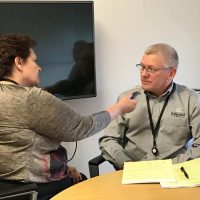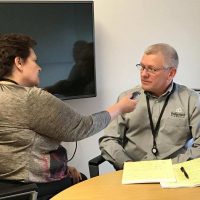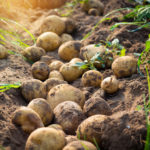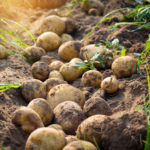Former Ag. Secretary-Designee Brad Pfaff describes his decision to run for State Senate
It is a familiar face-off for the 32nd Senate District Seat.
Former incumbent Dan Kapanke is running against his 2004 competitor Brad Pfaff. More recently, Pfaff served as the Secretary-Designee for the Wisconsin Department of Agriculture, Trade, and Consumer Protection until the State Senate refused to confirm him in that position last November.
Pfaff said he did not intend to enter the election because he never thought the seat would be available, but State Senator Jennifer Shilling (D-Onalaska) resigned before the end of her term and now works with Dairyland Power Cooperative.
“My phone began to ring over and over with people asking me to step forward and to consider running for this seat,” Pfaff said. “It took an awful lot for my family and me to decide that we were going to do that, but we kept hearing from individuals saying, ‘please step forward. We need to have leadership when it comes to making sure that the concerns of this district are being heard in the state legislature. We really want someone who is willing to stand up to the special interests.’”
Pfaff said the key issue he hears from voters is uncertainty surrounding the Coronavirus as residents are eager to return to life as normal.
“We all want that, but in order to do that, we need to be able to come together and contain the spread of this virus,” Pfaff said. “It is not good for our family farmers. It is not good for our small business owners. Let’s come together and recognize the enemy here is not one another. The enemy is this virus. Let’s continue to work with our scientists to make sure we can get a vaccine.”
Farms and small business the focus of candidate roundtables
Small business and family farms will be the focus of a series of candidate roundtables happening this week. The events, co-hosted by Main Street Alliance and Wisconsin Farmers Union, will offer the opportunity for discussion around crucial issues facing small business, farmers, and the local economy. Candidates from both sides of the aisle have been invited to share their ideas for addressing these issues in Madison.
Each roundtable will be a call-in tele-townhall and kicks off at 5pm CST.
· Senate District 30, Tuesday, Oct. 20.
RSVP: https://www.mainstreetalliance.org/sd30_candidate_roundtable
· Assembly District 74, Wednesday, Oct. 21.
RSVP: https://www.mainstreetalliance.org/ad74_candidate_roundtable
· Senate District 32, Thursday, Oct. 22.
RSVP: https://www.mainstreetalliance.org/sd32_candidate_roundtable (Thursday, 10/22)
“Our goal is to equip small business owners, farmers and the community as a whole with information about how each candidate will work with small business and farmers to help sustain a vibrant economy in your community,” said Shawn Phetteplace, Wisconsin manager of the MSA.
“The challenges wrought by 2020 have shown a need for clear leadership and creative collaborations if we’re going to revitalize rural Wisconsin,” said WFU President Darin Von Ruden. “These roundtables will provide an opportunity for candidates to share how they would contribute to that vision of vitality for family farms and small businesses.”
For more information about these events, please contact Shawn Phetteplace at [email protected].
DBA Announces Northcentral State Legislature Endorsements
The Dairy Business Association, Wisconsin’s leading dairy lobbying group, is endorsing candidates in several legislative races in northcentral Wisconsin.
DBA based its endorsement decisions on candidates’ positions on agricultural issues and, where available, their past voting records on bills supported by the association, which advocates for the state’s dairy farmers and allied businesses.
DBA is endorsing Rep. Mary Felzkowski, R-Irma, in her race to fill the 12th Senate District seat vacated by now Congressman Tom Tiffany. In the 24th Senate District, the association is supporting Sen. Patrick Testin, R-Stevens Point, for reelection. DBA also is endorsing Rep. Joan Ballweg, R-Markesan, as she runs to replace retiring Sen. Luther Olsen, R-Ripon, in the 14th Senate District.
“Joan Ballweg has been a true friend to the state’s farmers,” said Tom Crave, DBA president and a dairy farmer. “Her and her husband own a farm implement dealership and they understand many of the challenges we face in agriculture firsthand. That is rare in the state Legislature these days. She’ll be a welcome addition to the state Senate.”
In addition to those Senate races, DBA is endorsing 10 candidates from northcentral Wisconsin in Assembly contests: Rep. Rob Swearingen, R-Rhinelander, in the 34th District; Rep. Jeff Mursau, R-Crivitz, in the 36th District; Nate Zimdars, D-Ripon, in the 41st District; Rep. Jon Plumer, R-Lodi, in the 42nd District; Rep. Nancy VanderMeer, R-Tomah, in the 70th District; Rep. Katrina Shankland, D-Stevens Point, in the 71st District; Rep. Scott Krug, R-Nekoosa, in the 72nd District; Rep. Pat Snyder, R-Schofield, in the 85th District; Rep. John Spiros, R-Marshfield, in the 86th District; and Rep. James Edming, R-Glen Flora, in the 87th District.
This past legislative session, there was a particular focus on water quality, which included hearings across the state held by the Speaker’s Taskforce on Water Quality. Shankland served as vice-chair of that bipartisan group. Together with Testin, Felzkowski, Krug and many more, the taskforce dug into the questions surrounding water quality.
“Farmers are the original stewards of the land. We want to be partners in our state’s efforts to improve water quality and the environment as a whole,” John Holevoet, DBA’s director of government affairs, said.
“We appreciated the leadership of Representative Shankland and her desire to work together with her colleagues and the public to find solutions,” he said. “We anticipate these conversations are only the beginning and we look forward to continuing them next session.”
Custom Operator Crew of the Year Award Nominations Being Accepted
Teamwork is critical during the harvest season. For custom farmers, pulling together, putting in the hours, supporting your crew and going the distance to complete the task at hand is what harvest is all about. It’s tough to find good employees, and at the same time, there are men and women employed by custom farmers who make significant contributions to their crew.
Wisconsin Custom Operators, Inc. (WCO) will honor an entire crew from a custom farming operation who demonstrate excellence in the areas of safety, efficiency, customer service, environmental stewardship, profitability and community engagement. This award is particularly focused on acknowledging and recognizing crew contributions that go above and beyond.
The decision to honor a “crew” versus an individual “employee” is based on the large emphasis custom farmers place on crews or teams in their work culture.
The crew – made up of both full-time and part-time employees – of a WCO member – are eligible to participate in the annual award selection process. The winning crew will receive $1,000 divided evenly among all members, as well as other prizes and apparel.
“This year has pushed us all to our limits. Farmers and custom farmers are essential workers and the pandemic has added extra precautions and safety measures to our already full plates,” said Ray Liska, WCO vice president. A good crew is worth their weight in gold and we want to show our appreciation for the many steadfast crews out there.”
Applications for the WCO Crew of the Year Award will be accepted through Dec. 1. An entire crew, from a WCO member-business, will be honored. The person making the nomination does not have to be a member of WCO. That means that farmers, clients of operators and fellow operators can all make nominations.
Visit https://wiscustomoperators.org/about/outstanding_crew_of_the_year.php for more information including eligibility, criteria and applicati
Bacon Farmers Seek Immediate Pandemic Relief Action
President Trump expressed disappointment regarding the ongoing stalemate in the development of new COVID-relief legislation, saying his lead negotiator “hasn’t come home with the bacon.” Without immediate relief for hog farmers in crisis, the treasury secretary may not be the only one not bringing home the bacon, according to the National Pork Producers Council (NPPC).
“We’ve lost hog farmers of all sizes due to the COVID pandemic and need additional relief to preserve a highly competitive pork production system in the United States,” said NPPC President Howard A.V. Roth, a hog farmer from Wauzeka, Wisconsin. “Without federal assistance, we will lose more hog farmers and see our farm sector consolidate, limiting consumer choice and reducing what have been record production levels in recent years.”
U.S. hog farmers are facing $5 billion in collective pandemic-related losses this year following two challenging years due to trade retaliation. NPPC is seeking the following provisions in a new COVID-relief package:
- compensation for euthanized and donated hogs;
- additional funding for animal health surveillance and laboratories, which have appropriately assisted and shared resources with their public health partners;
- modification of the Commodity Credit Corporation charter so a pandemic-driven national emergency qualifies for funding;
- additional funds for direct payments to producers without restriction; and
- extension of the Paycheck Protection Program with modifications to make it accessible to more producers.
Roth added, “We appreciate previous relief extended by the administration and Congress to pork producers and other farmers. Unfortunately, it has not stabilized our farm sector; we need immediate action to offset the severe impact of COVID on a key element of the rural economy.”
Reminder: DMC Is Now Open Through December
With the ongoing COVID-19 crisis teaching hard lessons on risk management throughout agriculture, and with dairy margins expected to be volatile over the next year, the National Milk Producers Federation (NMPF) urges farmers to sign up for maximum coverage in 2021 under the Dairy Margin Coverage (DMC) program.
DMC is designed to ensure that dairy farmers can protect themselves against financial catastrophe. Despite forecasts in late 2019 predicting that DMC was unlikely to generate payments in 2020, margins fell to their lowest levels in more than a decade in the first half of this year, triggering payments that kept many dairies afloat. The current USDA forecast indicates margins will drop below $9.50/cwt. in the first half of 2021. DMC coverage offers certainty in times of need, allowing for better financial planning and faster payment when necessary.
Enrollment for the 2021 DMC program year runs through Dec. 11. See below and visit USDA’s Farm Service Agency’s DMC page for more information.
ELIGIBILITY
All U.S. dairy operations are eligible for DMC. An operation can be run either by a single producer or multiple producers who commercially produce and market milk. Each producer on an operation must share the risk of producing milk and make contributions (including land, labor, management, equipment, or capital) to the dairy’s operation at least equal to the individual or entity’s share of the operation’s proceeds.
An eligible dairy operation must:
- Have a production history determined by USDA’s Farm Service Agency (FSA).
- Be registered to participate during a signup announced by FSA.
- Pay a $100 administrative fee annually for each year of participation, except if the dairy operation qualifies for a waiver for limited resource, beginning, socially disadvantaged, or veteran farmers and ranchers.
A dairy operated by more than one producer still will be registered as a single operation. Producers who operate two or more dairies need to register each operation separately to cover that operation.
Eligible DMC participants are also eligible to participate in the Livestock Gross Margin for Dairy Producers Program and the Dairy Revenue Protection Program. Both are administered by the USDA Risk Management Agency.
COVERAGE LEVELS
Producers have multiple options for coverage each year. Basic catastrophic coverage of $4/cwt. is free, except for the $100 annual administrative fee. Farms can insure their first 5 million pounds of milk production history, designated as Tier I, in 50-cent increments from $4/cwt. up to $9.50/cwt. Annual production above 5 million pounds falls into Tier II. Coverage options in Tier II range from $4/cwt. to $8/cwt. Producers must also select a coverage percentage of the dairy operation’s production history ranging from 5 percent to 95 percent, in 5-percent increments.
The following table provides the premium schedule.
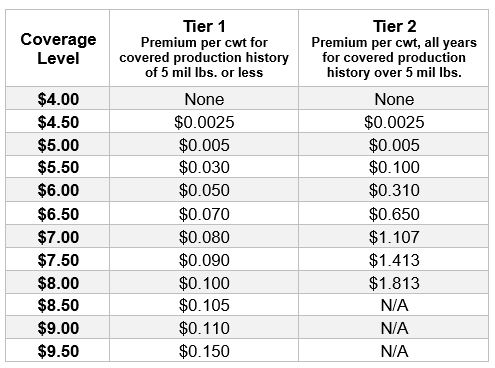
HOW TO APPLY
FSA opens enrollment for DMC on Oct. 13 for calendar year 2021. The deadline to enroll for 2021 coverage is Dec. 11.
All dairy farmers who want 2021 coverage must visit their local USDA Service Center office to pay the annual administrative fee, which is $100 for all coverage levels. Producers must visit their local office even if they locked in coverage in 2019 for five years to take advantage of the 25% premium discount offered the first year of the program.
ADDITIONAL SUPPORT
USDA offers a variety of programs that have helped dairy farmers in addition to DMC, including insurance, disaster assistance, and conservation programs. Most recently, the first round of aid under the Coronavirus Food Assistance Program provided $1.75 billion in direct relief to dairy producers who faced price declines and additional marketing costs due to COVID-19 in early 2020. Signup is now underway for a second round of CFAP payments, offering further assistance for dairy producers and many other eligible producers. CFAP 2 applications are being accepted by FSA offices now through Dec. 11.
Corn Futures Add Additional Pressure to Feeder Cattle Contracts
By Jeff Swenson, Livestock & Meat Specialist at DATCP
Forty one percent of corn and 61 percent of soybeans have been harvested for grain nationally. Wisconsin crop progress is ahead of the five year average. Corn for silage is 96 percent chopped, four weeks ahead of last year and three weeks ahead of the average. Corn harvested for grain in the state is 15 percent complete, up from 8 percent the previous week. Corn harvest in Wisconsin is running 18 days ahead of last year and three days ahead of the five year average. Moisture content is averaging 23 percent. Soybean harvest in Wisconsin is 46 percent complete, 16 days ahead of last year and a week ahead of the average. Strong export demand for US raised soybeans and dry weather in Brazil’s crop growing regions have buoyed bean prices. China’s talk of preparing for war was pressuring US financial and commodity markets Thursday, however. China has bought about one-third of their Phase I trade commitment with the US for the year so far. Corn futures at or near $4.00/bushel have added additional pressure to Feeder Cattle contracts. Feeder cattle prices at auction markets have varied widely. Fed Cattle futures, and cash cattle were lower this week.
Buyers and sellers have struggled to agree in the cattle market this week. Sellers came into the week expecting prices steady to $2.00 higher, while buyers expected to buy cattle steady to $1.00 lower than last week. Wholesale beef prices were lower this week, and while beef demand has been good domestically, there’s evidence shoppers are being attracted to pork and chicken given those proteins’ price relative to beef. We can generally expect beef prices to increase leading into the Holiday Season, especially given supplies of market-ready cattle are decreasing now, but 2020 hasn’t been a typical year.
Wholesale pork prices are 27 percent higher than this time last year, and cash hog prices are going up. The market is shrugging off expectations of a large supply of hogs available. From a price standpoint, pork is still an economical choice for the consumer when compared to beef. Exports have been strong given the attractiveness of US pork prices, African Swine Fever in parts of the world, and countries needing to control food prices during COVID-19 driven economic slowdowns.
Lamb prices are strong with little signs of slowing down. Lamb isn’t a protein consumed at home by the average family. From a foodservice standpoint, most lamb would be utilized by high-end restaurants – the type of restaurants that are struggling the most this year. Ethnic markets are changing lamb demand and driving prices. Lambs weighing no more than 85 pounds are most desirable for existing ethnic markets. This has meant there are fewer feeder lambs available and fewer lambs being fed to the conventional 110 to 130 pounds. In short, there isn’t as much traditional restaurant type lamb available and that has driven up prices.
A story in Meat + Poultry says consumers are reporting paying more for meat and poultry in the past six months. The information is based on a survey done by C+R Research, a Chicago-based marketing research company. Eight-five percent surveyed said that meat, eggs and milk are the top three items they’re paying more for. In a separate report cited in the article, The Bureau of Economic Analysis recently released data showing price increases of 10.3% for beef, 6.3% for poultry and 5% for pork, backing the consumers’ claims. While 65 percent said they have cut back on food spending, 88 percent are concerned grocery prices will continue to increase, and 85 percent are worried that shortages will continue.
High yielding Choice beef breed steers and heifers at Wisconsin and surrounding state auction markets were steady to $1.00 lower, bringing $101.00 to $108.00/cwt. High-yielding cattle with an overnight stand brought up to $110.50/cwt. Holstein steers were steady to $1.00 higher at $93.00 to $98.00/cwt, with a few selling higher. Cows were higher, most brought $44.00 to $58.00/cwt. Blemish free cows in fleshier condition sold into the $80.00s/cwt. Dairy breed bull calves were mostly steady at $75.0.00 to $180.00/head with a few to $190.00/head. Market lambs brought up to $165.00/cwt. Lighter weight lambs brought up to $205.00/cwt.
Cade Continues On Compeer Board
Compeer Financial, a member-owned Farm Credit cooperative serving Illinois, Minnesota and Wisconsin, is pleased to announce the results of its 2020 board of directors election.
Continue reading Cade Continues On Compeer Board at Mid-West Farm Report.
UW-Madison Leads Effort to Develop New Potato Varieties
Potatoes are a widely-loved vegetable. Baked, mashed, fried or chipped, they are a tasty treat. But they aren’t perfect. Potatoes present a big challenge for the plant breeders who work on the crop, trying to develop new varieties that are more savory, sustainable, storable or growable.
Continue reading UW-Madison Leads Effort to Develop New Potato Varieties at Mid-West Farm Report.
UW-Madison Partakes in Colation to Advance Adoption of Kernza, First U.S. Perennial Grain Crop
A multi-state coalition of researchers, farmers, educators, industry leaders, policy experts, and climate scientists—including researchers from the University of Wisconsin–Madison—was recently awarded a competitive 5-year, $10 million grant through USDA NIFA’s Agriculture and Food Research Initiative’s (AFRI) Sustainable Agricultural Systems program to scale the research, production, awareness and commercialization of KernzaⓇ, the first commercial perennial grain in the United States.
KernzaⓇ is the trademark name for the perennial grain harvested from new varieties of intermediate wheatgrass (Thinopyrum intermedium), a forage grass that has been used by farmers across the United States for decades. As a perennial, KernzaⓇ is planted once and provides several years of harvestable grain. KernzaⓇ has a deep root system that provides multiple environmental benefits, including improving water and soil quality and reducing soil erosion. Additionally, research has shown that this new perennial grain can increase farm income due to decreased inputs and costs from reduced tilling, pesticide requirements and nutrient runoff.
“Developing agroecosystems that provide healthy food while reducing environmental impacts in the face of climate change is a top global priority for agricultural research,” says Valentín Picasso, an assistant professor in the UW–Madison Department of Agronomy and a co-PI on the grant. “Cropping systems that include perennial forages and grain crops—such as KernzaⓇ—can contribute to food for humans and feed for livestock while reducing environmental impacts and increasing resilience to climate change relative to annual cropping systems.”
Picasso has years of KernzaⓇ research experience as part of his efforts to assess the management of perennial dual-purpose crops in sustainable forage and grazing systems. Since graduate school, he has been an active collaborator with The Land Institute, the non-profit agricultural research organization that developed KernzaⓇ. As leader of the new AFRI project’s agronomy-focused objectives, Picasso will oversee efforts to explore KernzaⓇ variety evaluation, fertilizer optimization, and on-farm research to develop best management practices.
Other members of the UW–Madison team include Michael Bell, professor of community and environmental sociology; Julie Dawson, associate professor and extension specialist in the horticulture department; Carrie Labowski, professor and extension specialist in the soil science department; Diane Mayerfeld, outreach specialist in the UW–Madison Division of Extension (Extension); Samuel Pratsch, researcher with Extension; Gene Schriefer, outreach specialist with Extension; Dave Stoltenberg, professor of agronomy. Beef farmers John and Dorothy Priske, owners of Fountain Prairie Farm, are partners on the project.
The long-term goal of the AFRI project, formally titled Developing and Deploying a Perennial Grain Crop Enterprise to Improve Environmental Quality and Rural Prosperity, is to develop a blueprint for US agricultural systems to shift from annual row crop production that requires tilling and planting every year to perennial production. By building the support system necessary to successfully increase KernzaⓇ acres, this project aims to improve the environmental sustainability of food production and demonstrate the viability of new perennial crops as real economic opportunities for farmers and rural communities.
“The Land Institute [Kansas] launched the research and development of KernzaⓇ nearly two decades ago with the vision of transforming agriculture to a just, diverse and perennial system,” explains Rachel Stroer, Acting President of The Land Institute, a partner in the project. “This grant is built on years of active collaboration among the stakeholders and is an exciting step toward our vision for KernzaⓇ and other future perennial grains being developed at The Land Institute and partner institutions globally.”
This project, informally called the KernzaⓇCap project, brings together partners from multiple states to form teams that will lead research and activities focused on breeding, agronomics, environmental quality, supply chains, and education. Each team is composed of academic and non-academic experts, including researchers, industry leaders, farmers, educators, and policy makers representing 10 universities and 24 non-profit and farm and food organizations. A sixth team focused on integration will be charged with ensuring that the project’s many partners are communicating and cross-collaborating effectively and efficiently.
Dr. Jacob Jungers, Assistant Professor in the Department of Agronomy and Plant Genetics at the University of Minnesota and leading coordinator of the project, explains, “A critical part of the KernzaⓇCap is integration. The project will align research, education, commercialization and implementation efforts to operate in concert on a local to national scale. This project will simultaneously advance the genetics of KernzaⓇ, guide farmers on how to grow it, and partner with companies on how to use and market it. We envision this collaborative approach will ensure that KernzaⓇ is agronomically sound, economically viable and environmentally sustainable.”
Results from the KernzaⓇCap will include new cultivars that yield more grain and enhance critical ecosystem services, a better understanding of those ecosystem services, best agronomic management practices for KernzaⓇ production, as well as multiple operating regional supply chains and increased national market demand for KernzaⓇ. Additional goals of the project include developing a wide range of educational materials for teaching perennial agriculture concepts in K-12, higher education, and adult learning contexts, as well as piloting opportunities and approaches for state and federal policies that support increased KernzaⓇproduction.
The KernzaⓇCap project officially launched on September 1st. More information on KernzaⓇ, the project partners, updates and reports on research findings, additional press materials, and field day demonstration information can be found on kerna.org/kernacap. The project progress will also be shared regularly through Twitter: @MKernza, IG: umn_sustainable_crops and the hashtag #KernzaCAP.
This work is supported by AFRI Sustainable Agricultural Systems Coordinated Agricultural Program (SAS-CAP) grant no. 2020-68012-31934 from the USDA National Institute of Food and Agriculture.

